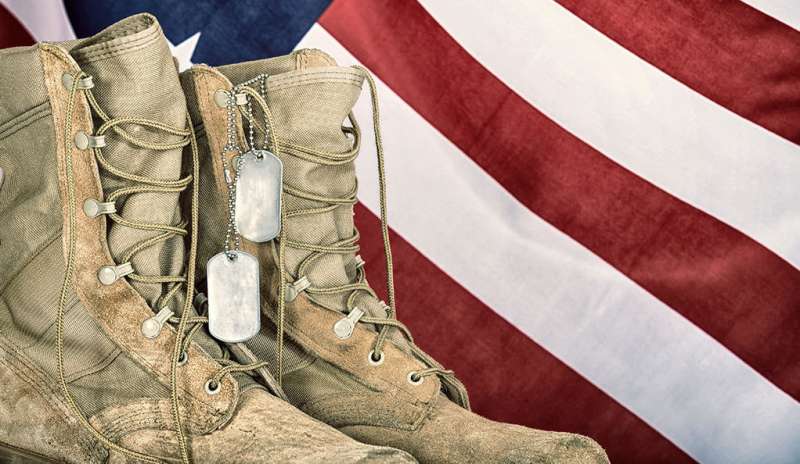For suicidal veterans, loneliness is the deadliest enemy

About 20 veterans commit suicide every day. The primary enemy most veterans face after service is not war-related trauma but loneliness, according to a new study by researchers at Yale and the U.S. Department of Veterans Affairs National Center for Posttraumatic Stress Disorder (PTSD).
The study, scheduled to be published Oct. 1 in the journal World Psychiatry, followed 2,000 veterans over a period of four years to help explain why studies have shown that vets are more than twice as likely to kill themselves as their civilian counterparts. At enrollment, the participants never had suicidal thoughts and were representative of U.S. military veterans as a whole: They were predominantly older, with an average age of 62, and two-thirds had never seen combat.
"When you look at the age breakdown of veterans who kill themselves, 65 percent are over the age of 50," said lead author Robert H. Pietrzak, Director of the Translational Psychiatric Epidemiology Laboratory of the Clinical Neurosciences Division of the U.S. Department of Veterans Affairs National Center for PTSD and associate professor of psychiatry at Yale. "We sought to identify early warning signs of suicide risk in this population, much like high blood pressure and cholesterol levels can help predict heart disease."
Over a four-year period, 7.5 percent developed suicidal thoughts, Pietrzak and his team found. While post-traumatic stress and related psychiatric problems were a significant risk factor for the development of suicidal thinking, they ranked behind loneliness and disability as risk factors for the group as a whole. Symptoms of physical illness and alcohol use problems were among several other factors identified. Veterans who tended to deny that traumatic life events had happened to them also were more likely to develop suicidal thoughts.
The study also identified factors that protected against the development of suicidal thoughts, a topic largely ignored in the prior studies. Veterans who had greater levels of social support, exhibited greater curiosity and confidence in their ability to 'bounce back' from adversity, and who accepted past traumas in their life were all were less likely to develop suicidal thoughts.
"To date, there has been a strong emphasis on treating pathology rather than bolstering resources these individuals may already possess," Pietrzak said. "Results of this study suggest that preventing suicidal thinking may not only be about fixing what is wrong, but also building what is strong."
More information: Robert H. Pietrzak et al. Factors protecting against the development of suicidal ideation in military veterans, World Psychiatry (2017). DOI: 10.1002/wps.20467


















